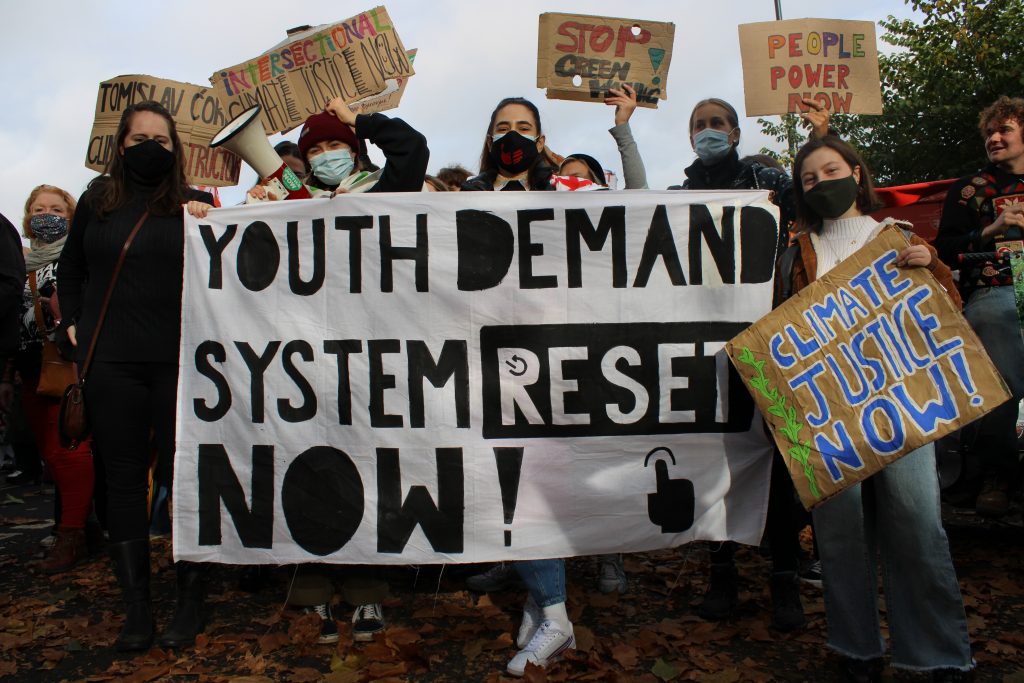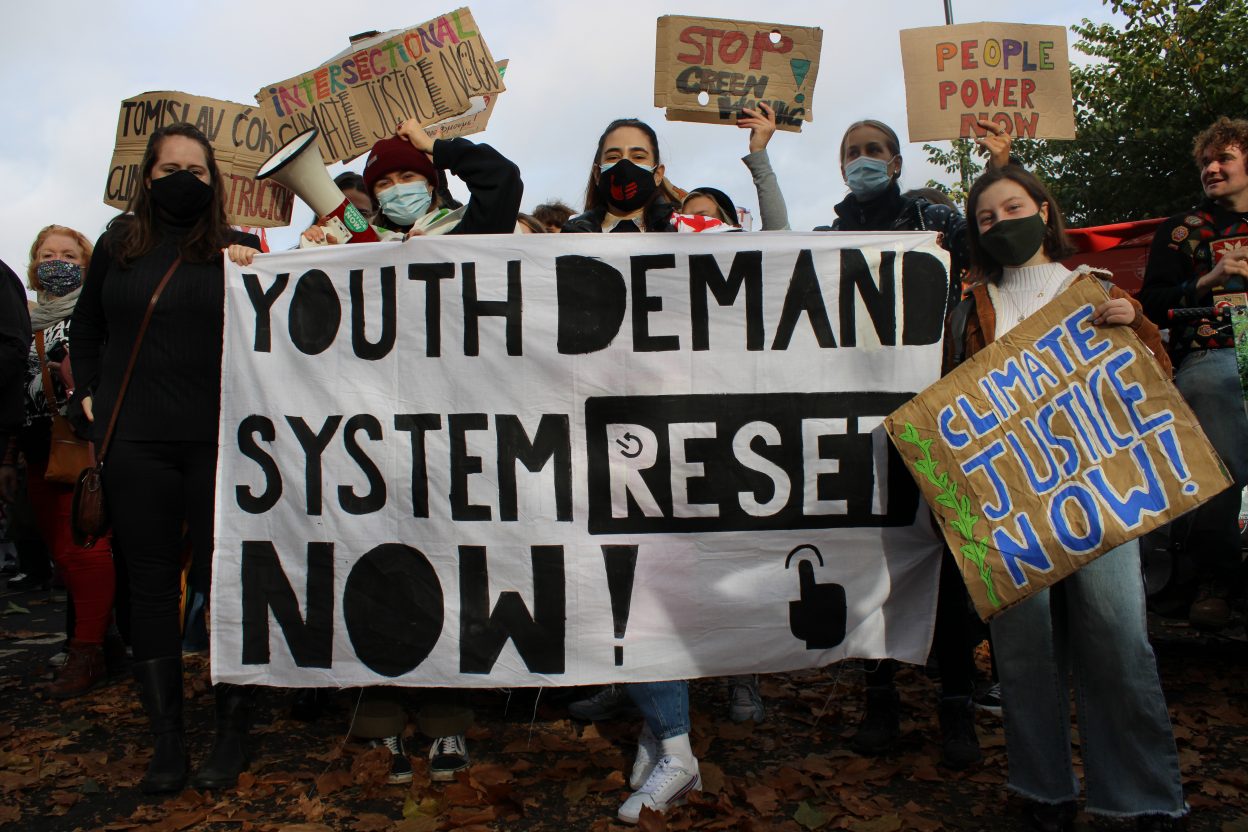Written by Maris Pedaja and Karola Kivilo
At a time when the whole world is once again looking to the heads of state meeting in Glasgow to discuss the future of global climate policy at COP26, there is a particular skepticism among observers. By 2021, we have heard plenty of fine words and promises full of air, but the power to deliver on the great promises of climate policy has so far been lacking in the arena.

A week before the arrival of UN leaders, a second summit was held in Glasgow: some 400 young delegates from around the world attended a youth climate conference to give final touch to the common demands of young people, which were personally handed over to COP26 leaders.
The youth climate conference culminated in a visit by COP26 President Sharma, who promised to do his utmost to ensure that the demands of young people were taken into account in the “real” talks, but said that this would not be an easy challenge. He left out the main reason: climate policy decisions are still driven by the short-term self-interest of oil companies and a well-funded lobby intertwined with fossil fuels, which provides business-as-usual solutions instead of systemic change. It is worth mentioning that more MEPs from fossil fuel companies were present at the COP26 talks than from any other country.
What young delegates demanded at the youth climate conference overlapped with what about 3300 young people over Europe shared in SYSTEM:RESET workshops and vision collecting that is now formed into ‘OUR GREEN DEAL FOR EUROPE – A JUST ONE’. When young people in COY16 demanded from head of states to listen to them; take them, scientists and their concerns seriously and care for them and next generations, in Green New Deal demands and proposals are much more concrete.
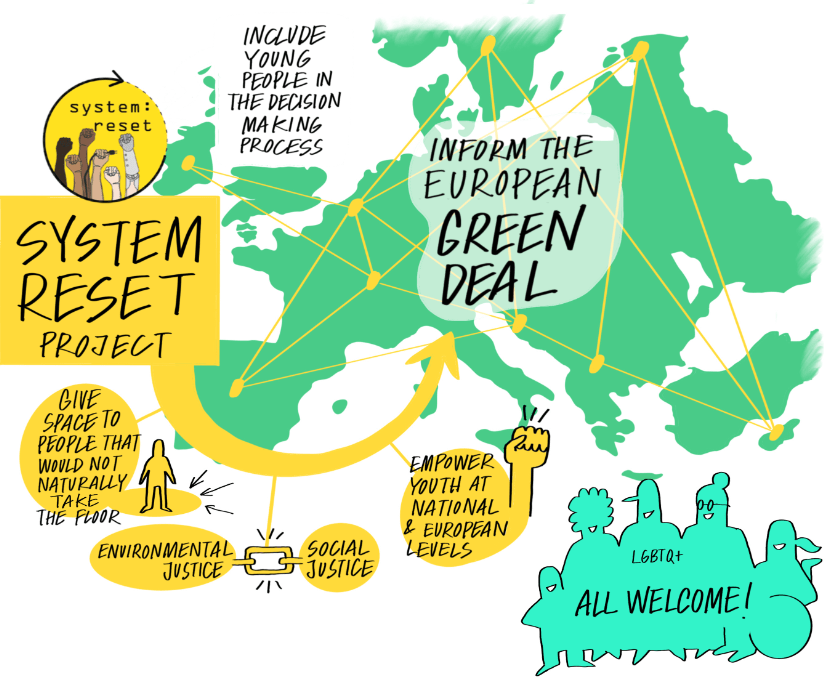
The visions are divided according to thematic categories and formulated as priorities for the future, suggested solutions and actions, and policy recommendations. They all reflect the future that youth want. As youth from COY16 demanded criminalizing ecocide, youngsters from System:Reset demand to Implement retrospective and prospective climate justice legislation that will hold polluting businesses and individuals accountable for climate and environmental damages.

Starting from decarbonization, youth envisions a society based on degrowth, where fossil fuels are banned, energy is renewable and democratized, and sustainable travel is accessible to all. Ending with healthcare and social justice where all care work is fairly compensated, both at home and in society and Introducing minimum and maximum wages to decrease economic inequality and overconsumption.
Everything is carefully thought through and are necessary to be part of the future they want to live in. In all levels youth see that changes can be only systematic therefore addressing them systematically is only possible.
For sustainable production, consumption, and trade, youth envision a circular economy that prioritizes the needs of underrepresented communities, and one which improves the lives of people while protecting our planet.
Younger generation recognizes that they are part of an interconnected and irreplaceable ecosystem that has been damaged by human activity. Widespread pollution of air, water, and soil is not only affecting human health and livelihoods, but also the balance of ecosystems demand environmental remediation and collective action by all levels of society, including governments, businesses, communities, and people, to restore the health and quality of our air, water, and soil.
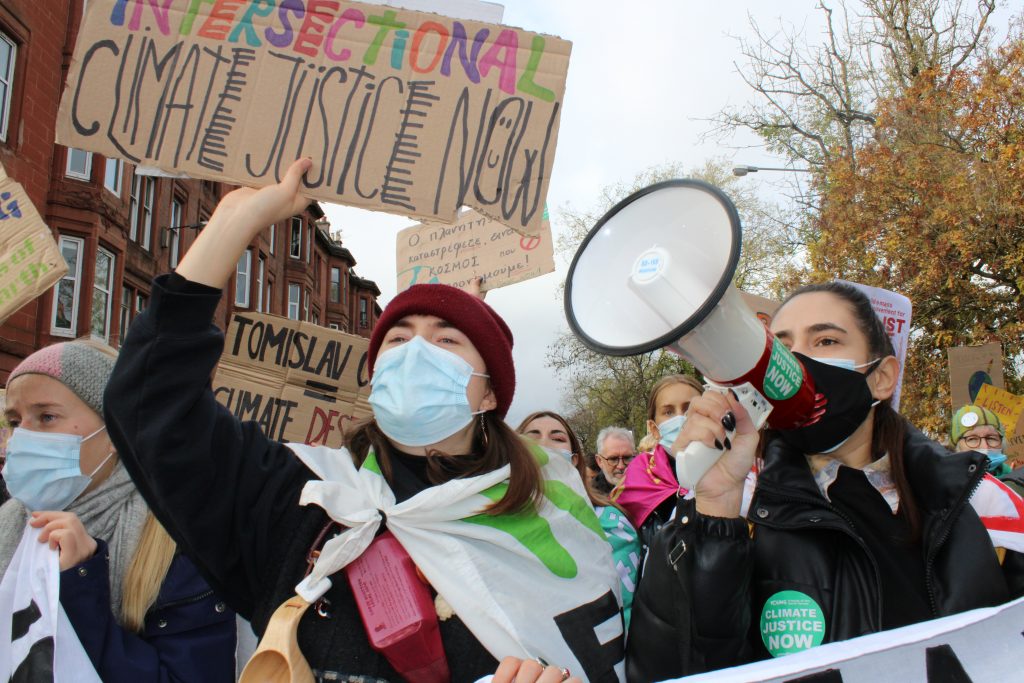
Rising generation is perceiving that the current food system is based on inequitable industrial agriculture and aquaculture, which is damaging for our climate, biodiversity, animal welfare, public health, local economies, and racial justice. Therefore they realized that they need a massive expansion of diversified, sustainable, organic, and regenerative farming systems that are based on practices that draw carbon out of the atmosphere and produce nutritious food using less energy, land, and water.
Youth recognizes that Mother Earth, nature, and all living beings have fundamental rights, which should be respected. Many visions focus on developing a society where people are in harmony with nature and work collectively to conserve, restore, and protect ecosystems.
Next generation envisions a society where individual and collective knowledge, skills, and know-how are integral parts of everyone’s life. Education should be objective, free for all, and accessible in various forms. Education will facilitate system change by embracing diverse ways of thinking, promoting cultural change, and teaching new skills.
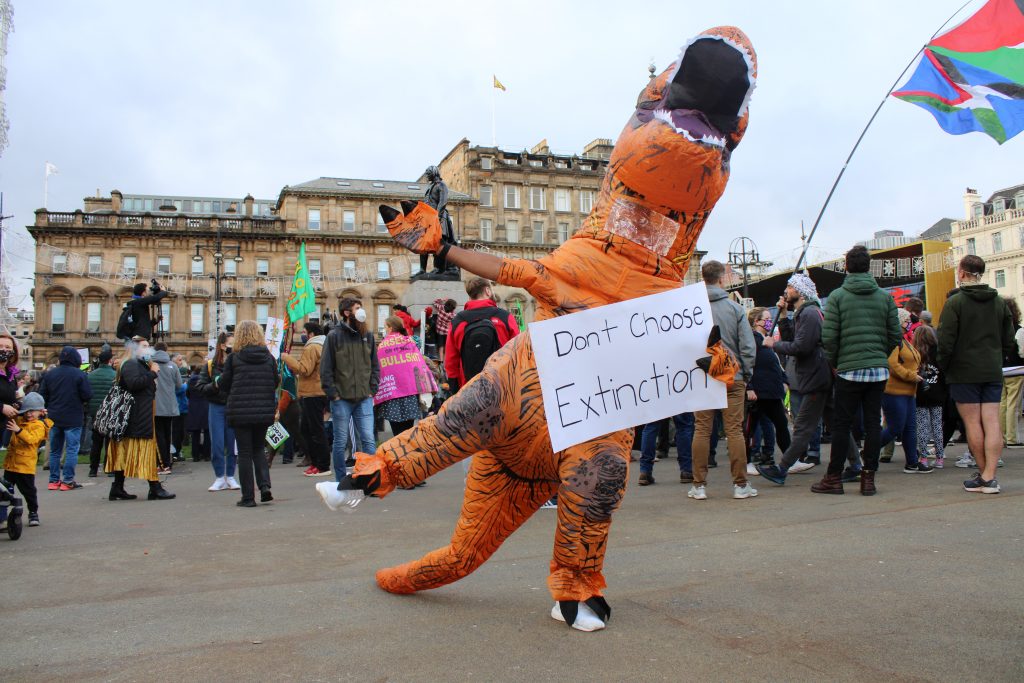
When it comes to governance and decision making, youth visualize a society where decision-making is transparent, belongs to the people, and includes the voices of underrepresented individuals and communities. These visions highlight the need for a just system, where governments take responsibility for tackling environmental issues, decisions are made in a collective and participatory way, and global power dynamics and capitalism are challenged.
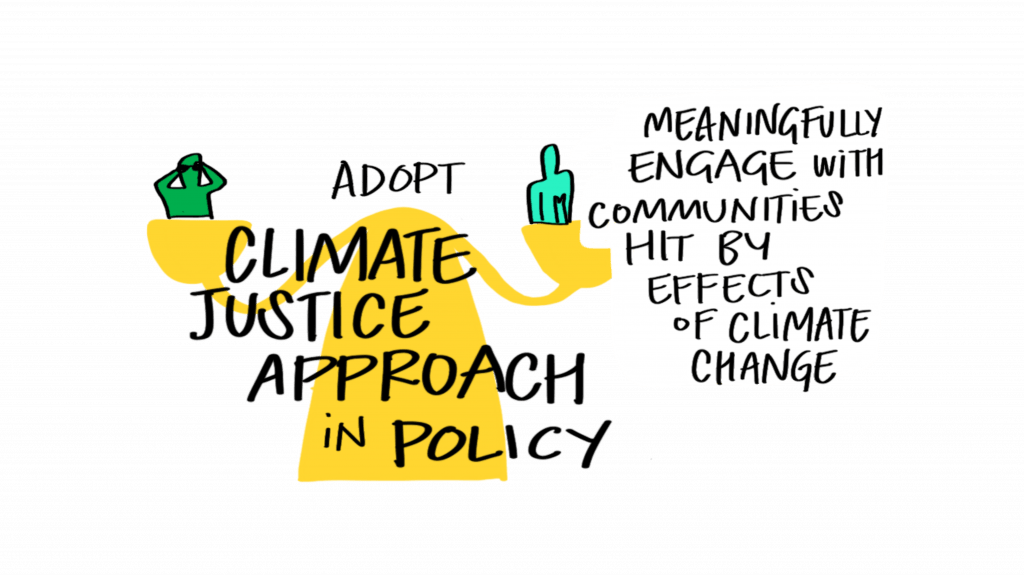
When financing the system transformation, finances need to be redirected towards supporting social justice and well-being and redistributed from the Global North to the Global South. Youth demand that governments and corporations take financial responsibility for their current and previous damaging (colonial) actions, and stop financing activities that are harmful to the environment.
The proposals shows that European youth is engaged, full of ideas, and ready for change. After months of brainstorming, visions for nine different sectors are presented in a proposal – now what is left is their implementation by local, national and European governments as well as businesses, communities and people.
